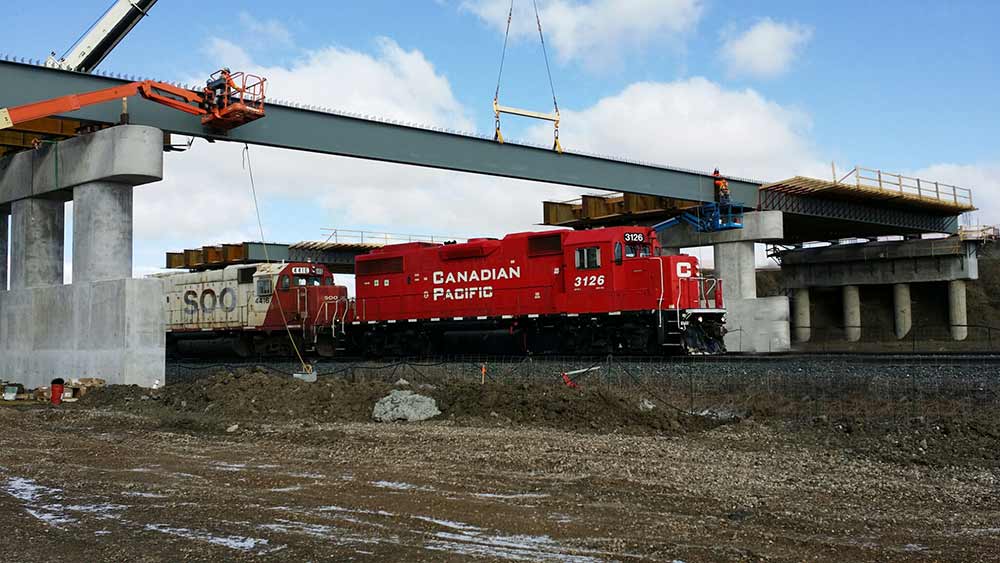Voice of Saskatchewan’s dynamic construction industry
By Rajitha Sivakumaran
The year 2015 was marked by a critical decline in the number of residential construction projects underway in Saskatchewan. Commercial construction, on the other hand, experienced a measured growth and exceeded past performances. The interconnectedness of the marketplace, however, ensures that business pursues a cyclical path, which is the predominant reason why Saskatchewan’s construction industry is currently facing a downturn.
The economy in Western Canada has been slower than usual mainly because of changing commodity prices; oil and natural gas prices have dropped significantly over the last two years. In Saskatchewan, potash, one of the province’s chief commodities, has taken a similar downward turn alongside uranium. In these cases, commodity prices have fallen from record levels.
“Any time other industries slow down, that eventually has an impact on the construction world because we’re the ones building things for them. So when they slow down, we will slow down too,” said Mark Cooper, president and CEO of the Saskatchewan Construction Association (SCA).
The present situation is this: less work, more competition and an influx of out-of-province companies. The combination of both the slowdown and new competition has led to a situation where construction companies are making their pricing more competitive. In some cases, the necessity to strictly control costs has resulted in layoffs and in times like these, the SCA comes to the aid of its members.
Advocates of the construction industry
Having been operational for 51 years and representing over 1,300 members across the province, the SCA’s mandate has remained on advocacy on behalf of the industry. “We want to be a business that is the first point of contact for construction companies and for construction issues in the province of Saskatchewan. What that means from our perspective is that we really view ourselves as connectors. We want to be able to connect our members with the solutions that they need for the problems that they face in a timely manner,” Cooper said.
Presently, the SCA is allotting more facetime with its members to understand the downturn’s impact on individual companies. “We find that’s important because the more we understand what our members are facing, the better we’re able to adapt our business to meet their needs,” Cooper said.
Throughout the current slowdown, the SCA has maintained a high degree of optimism, regarding the downturn as a transient setback, short in duration, and scarcely a blow to Saskatchewan’s economy.
“We’re in a downturn but things could be far worse,” Cooper said. “We’re still growing. We’re just growing at a slower pace than we used to.”
Nonetheless, the smaller growth rate has been difficult for companies due to the increased competition. Up until 2016, the workload was steady, but this year has been marked with a slight decrease. On the brighter side, labour market data provided by BuildForce Canada predicts that employment in the commercial construction sector will increase by nearly 4,000 new jobs by 2021. In fact, a substantial decline has been forecasted for residential building in the next five years. At the moment, however, residential is slowly making a comeback from the current downturn.
“The residential sector is a leading indicator for construction, so when we see that their numbers are starting to pick back up, we can anticipate that within about a year and a half to see something similar in commercial,” Cooper said, adding that surviving a downturn comes down to recognizing how cycles in the market work. A short while ago, when business spiralled downwards in residential, it took about 18 months for the effects to reach commercial construction. Seeing signs of recovery in the residential sector, the SCA is confident that the downturn will last no longer than two years.
In the meantime, it is a great time to invest and build in Saskatchewan due to competitive pricing and low interest rates. Reduced work availability and increased competition are ensuring low prices and faster project completion times since there are more labourers available for work. “We’re really encouraging people to take advantage of the opportunity and invest right now while it provides them a great window of time to be most successful,” Cooper said.
In this scenario, the benefits are mutual. Once the economy bounces back up, prices will increase accordingly, making the present an optimal time for investment. More work will also help the construction industry regain a strong footing and end the slowdown.
Talks of the future and current initiatives
“We are beginning a process of convening discussion in the industry to talk about the future and understanding where the Saskatchewan economy is going to be in 25 years and how we as an industry can be ready for that,” Cooper said.
These talks of the future entail a series of initiatives, and technology is a dominant topic. The SCA is working tirelessly to promote innovation in the use of technology, which is important for companies; it helps them deliver their services with the highest degree of efficiency — a requisite needed to survive through and beyond the downturn. Staying competitive means balancing costs, ensuring quality, competent use of technology, more proficient use of staff, training staff, and better project planning and scheduling; the SCA helps its members reach and achieve these initiatives.
Presently, the SCA is devoting a lot of time to promoting investment opportunities in Saskatchewan. These efforts help combat the effects of the slowdown while resolving other challenges of the industry such as finding and retaining skilled labour. “Saskatchewan is still a marketplace that doesn’t have enough people for all of the work we have and that creates challenges in terms of not just finding people, but finding people with skills, training those people and keeping them. That’s an ongoing challenge for our industry even now with the economy being a little softer than it was,” Cooper said.
www.scaonline.ca







